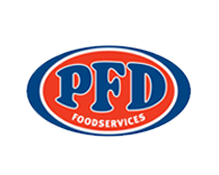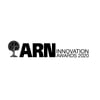Inferential Statistics
Inferential statistics: Inferential statistics is a type of statistics that is used to make predictions or inferences about a population based on a sample.
Inferential statistics is a powerful technique used to draw conclusions from data. It enables researchers and analysts to feel confident in the decisions they make based on their data-driven insights. This article will provide an overview of inferential statistics, including how it works and why it’s so important for making informed decisions.
The ability to make well-rounded decisions requires more than just collecting raw data – it also requires interpreting that data and using it to form educated opinions. Inferential Statistics allows us to do just that, by taking vast amounts of information and providing tangible results through statistical calculations. By understanding the basic principles of this process, users can gain insight into what their data means and use those conclusions in order to inform their decisions moving forward.
In this article, we will explore exactly what inferential statistics entails; touching upon the concepts of hypothesis testing, correlation analysis, non-parametric tests and much more! We’ll also look at several examples that help illustrate these principles in practical applications. So stick around as we dive deeper into the world of inferential statistics!
Which Is An Inferential Statistics?
Inferential statistics is a branch of mathematics that deals with making predictions about a population based on observations made from sample data. It involves the use of various tools and techniques, such as confidence intervals, statistical tests, time series analysis, fiducial probability, fiducial arguments, bayesian inferences and hypothesis testing. These methods allow us to draw conclusions from data by estimating the properties of a population or process. Statistical significance is an important concept in this context; it helps determine whether our estimates are reliable and valid. For example, if we observe a high standard deviation in our results then they may not be statistically significant due to their large variance. Similarly, normal distribution can help identify patterns in data that could indicate underlying relationships between variables. By applying these principles to collected samples, researchers are able to make more accurate predictions about populations than would have been possible without them. This knowledge allows for better decision-making when dealing with complex problems involving numerous factors. Furthermore, inferential statistics can provide insights into areas where traditional research methods may fail—such as predicting future trends or changes in customer behaviour. Therefore, it is an essential tool for any researcher looking to gain meaningful insights from their data.
What Are The 3 Types Of Inferential Statistics?
Inferential statistics provide a way to make conclusions that extend beyond the immediate data alone. It uses test statistics and economic models, such as linear regression, to assess relationships between variables and draw inferences about populations based on sample data.
There are three types of inferential statistics:
- frequentist properties,
- Bayesian inference,
- and median unbiased estimators (MUE).
Frequentist properties involve using standard errors or confidence intervals from survey results to form an opinion about a population's poverty rate or other economic growth factors. The most common type of frequentist inference is hypothesis testing where two hypotheses are tested against each other in order to determine which one has more support from the given data set. Hypothesis tests can also be used to compare means between different groups or treatments by computing a p-value or t-score.
Bayesian inference involves updating beliefs after observing new evidence; it relies heavily on prior knowledge or experience when making decisions based on future outcomes. Median Unbiased Estimators use statistical methods like bootstrapping and cross validation to estimate parameters within a dataset without bias towards any particular outcome. MUEs generally perform better than traditional methods like maximum likelihood estimation due to their ability to produce accurate estimates quickly with fewer assumptions.
The selection of inferential statistic techniques depends largely on the research question being asked and the context around it; however, all three approaches have proven invaluable tools for researchers looking to gain insights into complex phenomena through large datasets and advanced modelling techniques.
What Is Difference Between Descriptive And Inferential Statistics?
Descriptive and inferential statistics are both methods used to analyse data for further understanding. Descriptive statistics involve summarising a set of data in simple terms, such as frequency or probability. This type of analysis is often done with time series and least squares regression techniques. Inferential statistics involves making predictions about the population from which the sample data was taken by using tools like confidence levels and hypothesis tests.
The main difference between descriptive and inferential statistics lies in the way they are applied: descriptive statistics summarise existing data while inferential statistics make conclusions based on that same data. For example, if you were trying to understand how people feel about a certain product, you would use descriptive stats to count up survey responses over a period of time; then you could use inferential stats to draw conclusions from those numbers. Additionally, while descriptive stats can be used without any prior knowledge of statistical theory, inferential stats require familiarity with more advanced concepts like squared error loss, bayesian approaches and other data processing tools.
It is important to note that both types of analytics have their place when it comes to decision-making - each one provides different insights into the same underlying dataset. By combining them together, researchers can gain an even better understanding of what's going on within their datasets and determine what strategies will work best for them moving forward.
How Do You Tell If It Is Inferential Statistics?
In order to determine if a particular set of data is inferential statistics, it is important to understand the distinction between descriptive and inferential statistics. Descriptive statistics involves summarising, organising and presenting data in an understandable form while inferential statistics deals with making inference or predictions about population parameters based on samples. Inferences are made by analysing sample sizes drawn from large populations using statistical methods such as Chi Square Test, Central Limit Theorem, Regression Tests and Fiducial Distribution.
The first step in determining whether a given set of data is inferential statistics is to identify its type. Is it qualitative or quantitative? If qualitative (e.g., categorical variable), then the most appropriate method for analysis would be Chi Square test; if quantitative (e.g., numeric ), then regression tests may be used. Once the type has been determined, the next step involves understanding how sample size affects accuracy of inference. In general, larger samples lead to more accurate results due to their increased representativeness of the population they came from. This can be seen when we compare two different sets of sample statistics - one might show higher variability than another due to smaller size of data points collected in that particular dataset. Finally, once these steps have been taken into consideration, one can make an informed decision about which statistical techniques should be applied for inference-making purposes: either traditional parametric techniques or non-parametric ones like Fiducial Distributions depending on nature of problem at hand.
Conclusion
Inferential statistics are a branch of statistical analysis used to draw conclusions from data. It is the process of making inferences about populations or processes based on samples, and it can help us identify correlations between variables that may not be obvious when looking at raw data. Through careful consideration of sample size, sampling techniques, and analytical tools such as tests for significance, researchers can make valid claims about their results which can then be applied to larger groups of people or situations.
The three main types of inferential statistics are estimation, hypothesis testing, and correlation/regression analysis. Estimation involves taking a small sample from a population in order to estimate the characteristics (such as mean) of that population. Hypothesis testing compares two sets of data in order to determine if there is any statistically significant difference between them. Correlation/regression analyses looks for relationships between two variables by plotting them against each other to see how they vary together over time.
Descriptive statistics provide summaries about the data itself while inferential statistics go further by using those summaries to make predictions based on the information gathered so far. To determine whether an analysis is descriptive or inferential you should look at whether it provides information regarding a single set of data or whether it uses multiple sources and makes comparisons among them in order to infer something more generalisation than what has been observed directly.
PREVIOUS NARROW AI GLOSSARY TERM
NEXT NARROW AI GLOSSARY TERM
Inferential Statistics Definition
Exact match keyword: Inferential Statistics N-Gram Classification: Statistical Inference, Statistical Analysis Substring Matches: Statistics, Inferential Long-tail Variations: "Statistical Inference", "Statistical Analysis" Category: Mathematics, Statistics Search Intent: Learning, Research, Solutions Keyword Associations: Probability Theory, Descriptive Statistics Semantic Relevance: Data Science, Probability Theory, Statistics Parent Category: Mathematics Subcategories : Probability Theory, Descriptive Statistics Synonyms : Data Science, Probability Theory, Descriptive Statistics Similar Searches : Descriptive Statistics, Monte Carlo Simulations , Regression Analysis Geographic Relevance : Global Audience Demographics : Students , Researchers , Analysts Brand Mentions : SAS , SPSS , Excel Industry – Specific Data : Sampling Methods , Hypothesis Testing Commonly Used Modifiers : ”Analysis” , “Theory” , “Techniques” Topically Relevant Entities : Sampling Methods , Hypothesis Testing , Regression Analysis , Monte Carlo Simulations."Larry will be our digital expert that will enable our sales team and add that technological advantage that our competitors don't have."
Kerry Smith
CEO, PFD Foods
$1.6 billion in revenue 
"Lion is one of Australasia’s largest food and beverage companies, supplying various alcohol products to wholesalers and retailers, and running multiple and frequent trade promotions throughout the year. The creation of promotional plans is a complicated task that requires considerable expertise and effort, and is an area where improved decision-making has the potential to positively impact the sales growth of various Lion products and product categories. Given Complexica’s world-class prediction and optimisation capabilities, award-winning software applications, and significant customer base in the food and alcohol industry, we have selected Complexica as our vendor of choice for trade promotion optimisation."
Mark Powell
National Sales Director, Lion
"At Liquor Barons we have an entrepreneurial mindset and are proud of being proactive rather than reactive in our approach to delivering the best possible customer service, which includes our premier liquor loyalty program and consumer-driven marketing. Given Complexica’s expertise in the Liquor industry, and significant customer base on both the retail and supplier side, we chose Complexica's Promotional Campaign Manager for digitalizing our spreadsheet-based approach for promotion planning, range management, and supplier portal access, which in turn will lift the sophistication of our key marketing processes."
Richard Verney
Marketing Manager
Liquor Barons

"Dulux is a leading marketer and manufacturer of some of Australia’s most recognised paint brands. The Dulux Retail sales team manage a diverse portfolio of products and the execution of our sales and marketing activity within both large, medium and small format home improvement retail stores. We consistently challenge ourselves to innovate and grow and to create greater value for our customers and the end consumer. Given the rise and application of Artificial Intelligence in recent times, we have partnered with Complexica to help us identify the right insight at the right time to improve our focus, decision making, execution, and value creation."
Jay Bedford
National Retail Sales Manager
Dulux

"Following a successful proof-of-concept earlier this year, we have selected Complexica as our vendor of choice for standardizing and optimising our promotional planning activities. Complexica’s Promotional Campaign Manager will provide us with a cloud-based platform for automating and optimising promotional planning for more than 2,700 stores, leading to improved decision-making, promotional effectiveness, and financial outcomes for our retail stores."
Rod Pritchard
Interim CEO, Metcash - Australian Liquor Marketers
$3.4 billion in revenue 
"After evaluating a number of software applications and vendors available on the market, we have decided to partner with Complexica for sales force optimisation and automation. We have found Complexica’s applications to be best suited for our extensive SKU range and large set of customers, being capable of generating recommendations and insights without burdening our sales staff with endless data analysis and interpretation.
Aemel Nordin
Managing Director, Polyaire
"DuluxGroup is pleased to expand its relationship with Complexica, a valued strategic partner and supplier to our business. Complexica’s software will enable DuluxGroup to reduce the amount of time required to generate usable insights, increase our campaign automation capability, personalise our communications based on core metrics, and close the loop on sales results to optimise ongoing digital marketing activity."
James Jones
Group Head of CRM, DuluxGroup
"Instead of hiring hundreds of data scientists to churn through endless sets of data to provide PFD with customer-specific insights and personalised recommendations, Larry, the Digital Analyst® will serve up the answers we need, when we need them, on a fully automated basis without the time and manual processes typically associated with complex analytical tasks.”
Richard Cohen
CIO, PFD Foods
$1.6 billion in revenue 
"As a global innovator in the wine industry, Pernod Ricard Winemakers is always seeking ways to gain efficiencies and best practices across our operational sites. Given the rise of Artificial Intelligence and big data analytics in recent times, we have engaged Complexica to explore how we can achieve a best-in-class wine supply chain using their cloud-based software applications. The engagement is focused on Australia & New Zealand, with a view to expand globally."
Brett McKinnon
Global Operations Director, Pernod Ricard Winemakers
"70% - 80% of what we do is about promotional activity, promotional pricing -- essentially what we take to the marketplace. This is one of the most comprehensive, most complex, one of the most difficult aspect of our business to get right. With Complexica, we will be best in class - there will not be anybody in the market that can perform this task more effectively or more efficiently than we can."
Doug Misener
CEO, Liquor Marketing Group
1,400+ retail stores 
"The key thing that makes such a difference in working with Complexica is their focus on delivering the business benefits and outcomes of the project."
Doug Misener
CEO, Liquor Marketing Group
1,400+ retail stores 
"Australia needs smart technology and people, and it has been a great experience for me to observe Complexica co-founders Zbigniew and Matt Michalewicz assemble great teams of people using their mathematical, logic, programming, and business skills to create world-beating products. They are leaders in taking our bright graduates and forging them into the businesses of the future."
Lewis Owens
Chairman of the Board, SA Water 
"Having known the team behind Complexica for some years ago now, I am struck by their ability to make the complex simple - to use data and all its possibilities for useful purpose. They bring real intelligence to AI and have an commercial approach to its application."
Andrew McEvoy
Managing Director, Fairfax Media - Digital 
"I have worked with the team at Complexica for a number of years and have found them professional, innovative and have appreciated their partnership approach to delivering solutions to complex problems."
Kelvin McGrath
CIO, Asciano 
“Working with Complexica to deliver Project Automate has been a true partnership from the initial stages of analysis of LMG’s existing processes and data handling, through scoping and development phase and onto delivery and process change adoption. The Complexica team have delivered considerable value at each stage and will continue to be a valued partner to LMG."
Gavin Saunders
CFO, Liquor Marketing Group 
“Complexica’s Order Management System and Larry, the Digital Analyst will provide more than 300 Bunzl account managers with real-time analytics and insights, to empower decision making and enhanced support. This will create more time for our teams to enable them to see more customers each day and provide the Bunzl personalised experience.”
Kim Hetherington
CEO, Bunzl Australasia 
"The team behind Complexica develops software products that are at the cutting edge of science and technology, always focused on the opportunities to deliver a decisive competitive edge to business. It has always been a great experience collaborating with Matthew, Zbigniew and Co."
Mike Lomman
GM Demand Chain, Roy Hill Iron Ore 
"The innovations that the Complexica team are capable of continue to amaze me. They look at problems from the client side and use a unique approach to collaborating with and deeply understanding their customers challenges. This uniquely differentiates what they bring to market and how they deliver value to customers."
John Ansley
CIO, Toll Group 
"Rather than building out an internal analytics team to investigate and analyse countless data sets, we have partnered with Complexica to provide our sales reps with the answers they need, when they need them, on a fully automated basis. We are excited about the benefits that Larry, the Digital Analyst will deliver to our business.”
Peter Caughey
CEO, Coventry Group 
“Complexica’s Order Management System and Larry, the Digital Analyst will provide more than 300 Bunzl account managers with real-time analytics and insights, to empower decision making and enhanced support. This will create more time for our teams to enable them to see more customers each day and provide the Bunzl personalised experience.”
Kim Hetherington
CEO, Bunzl Australasia 
"After an evaluation process and successful proof-of-concept in 2016, we have chosen to partner with Complexica to upgrade the technological capability of our in-field sales force. The next-generation Customer Opportunity Profiler provided by Complexica will serve as a key tool for sales staff to optimise their daily activities, personalise conversations and interactions with customers, and analyse data to generate actionable insights."
Stephen Mooney
Group Sales Capability Manager, DuluxGroup
$1.7 billion in revenue
"After evaluating a number of software systems available in the marketplace, we have ultimately selected Complexica as our vendor of choice for sales force automation and CRM. Given the large SKU range we carry and very long tail of customers we serve, Complexica’s applications are best suited to deal with this inherent complexity without burdening our staff with endless data entry."
Nick Carr
CEO, Haircaire Australia
Australia's largest distributor of haircare products
“Asahi Beverages is Australia’s largest brewer, supplying a leading portfolio to wholesalers and retailers, including some of Australia’s most iconic brands. Last year Asahi Beverages acquired Carlton & United Breweries, which is its Australian alcohol business division. To harness the strength of our expanded portfolio, we partner with our customers to run multiple and frequent trade promotions throughout the year, delivering long-term growth for both our business and theirs. Given the inherent complexity in optimising promotional plans and our continued focus on revenue and growth management, we have selected Complexica as our vendor of choice after a successful Proof-of-Concept of its world-class optimisation capabilities.”
Kellie Barnes
Group Chief Information Officer
Asahi Beverages
"Dulux is a leading marketer and manufacturer of some of Australia’s most recognised paint brands. The Dulux Retail sales team manage a diverse portfolio of products and the execution of our sales and marketing activity within both large, medium and small format home improvement retail stores. We consistently challenge ourselves to innovate and grow and to create greater value for our customers and the end consumer. Given the rise and application of Artificial Intelligence in recent times, we have partnered with Complexica to help us identify the right insight at the right time to improve our focus, decision making, execution, and value creation."
Jay Bedford
National Retail Sales Manager, DuluxGroup
"At Liquor Barons we have an entrepreneurial mindset and are proud of being proactive rather than reactive in our approach to delivering the best possible customer service, which includes our premier liquor loyalty program and consumer-driven marketing. Given Complexica’s expertise in the Liquor industry, and significant customer base on both the retail and supplier side, we chose Complexica's Promotional Campaign Manager for digitalizing our spreadsheet-based approach for promotion planning, range management, and supplier portal access, which in turn will lift the sophistication of our key marketing processes."
Richard Verney
Marketing Manager, Liquor Barons































